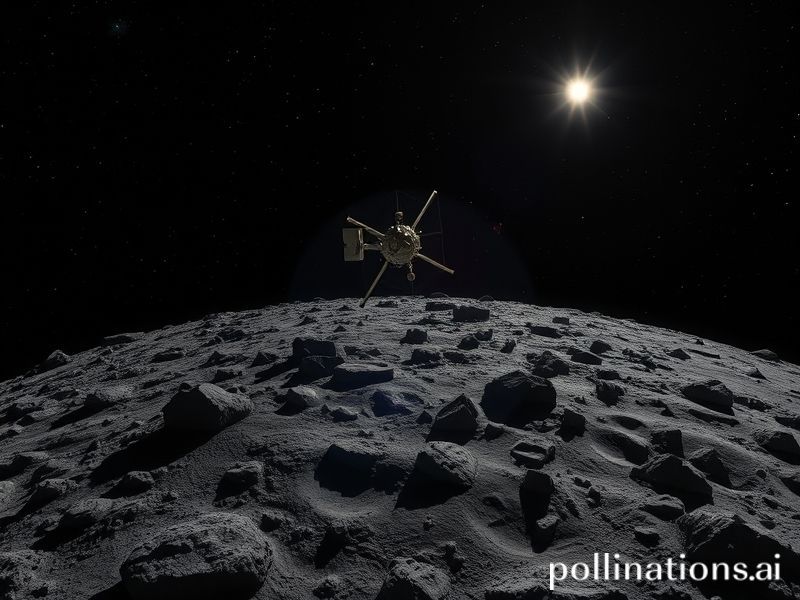NASA’s Asteroid Punch: How Humanity Proved It Can Save Earth While Still Destroying It
**The Cosmic Reality Check: NASA’s Asteroid Ballet and Earth’s Delusions of Invincibility**
While humanity busies itself with the terrestrial absurdities of TikTok trends and cryptocurrency crashes, NASA has been playing cosmic billiards with a 560-foot space rock named Dimorphos—proving that somewhere in the universe, something actually gives a damn about our collective survival, even if we don’t.
Last September, the Double Asteroid Redirection Test (DART) spacecraft performed what can only be described as the most expensive game of chicken in human history, slamming into Dimorphos at 14,000 miles per hour. The mission’s success wasn’t just American exceptionalism on display; it represented a rare moment of global competence in an era where international cooperation typically collapses faster than a cryptocurrency exchange.
The implications ripple across borders like a stone thrown into a pond, if that stone were capable of obliterating entire continents. For once, the usual suspects of global power politics had to acknowledge that existential threats don’t respect sovereignty. China’s space agency, typically busy photographing the Moon’s dark side and pretending it’s not militarizing orbit, offered grudging respect. Russia, preoccupied with its terrestrial imperial nostalgia, managed to tear itself away from Ukraine long enough to nod approvingly—perhaps recognizing that even oligarchs aren’t asteroid-proof.
The European Space Agency, operating with the enthusiasm of a continent that’s survived two world wars and countless existential crises, immediately began planning follow-up missions. Even Japan, a country intimately familiar with the fragility of human existence, contributed its expertise in spacecraft that actually work—unlike certain other nations whose Mars probes have a habit of converting to expensive confetti.
But here’s where the cosmic joke gets deliciously dark: while we’ve proven we can nudge a space rock, we’ve yet to demonstrate we can nudge ourselves away from self-destruction. The same species that can calculate orbital mechanics with millimeter precision can’t seem to calculate that maybe—just maybe—turning the atmosphere into a giant greenhouse might be counterproductive. We’ve mastered the art of planetary defense but remain amateurs at planetary maintenance.
The mission’s success has triggered a gold rush mentality among space agencies worldwide, with everyone suddenly remembering that asteroids aren’t just humanity’s potential executioners—they’re also conveniently pre-mined treasure troves of rare metals. Luxembourg, a country smaller than most American parking lots, has established itself as the Delaware of space mining incorporation. The United Arab Emirates, not content with building ski slopes in the desert, has announced plans to explore asteroid resources—because apparently, oil wealth isn’t enough when you could own your very own space rock.
Meanwhile, developing nations watch this cosmic theater with the weary amusement of people who’ve been told to worry about asteroids while their immediate concerns involve more terrestrial threats like famine, war, and climate change. It’s hard to get excited about planetary defense when your planet is already under siege from more mundane disasters.
The bitter irony? We’ve become remarkably adept at tracking civilization-ending rocks while remaining remarkably inept at tracking civilization-ending politicians. NASA can predict an asteroid’s trajectory decades in advance but couldn’t predict that maybe putting nuclear launch codes in the hands of reality TV stars might be problematic.
As Dimorphos continues its newly shortened orbit—now 32 minutes faster thanks to our cosmic intervention—it serves as a 560-foot reminder that the universe is gloriously indifferent to our petty terrestrial squabbles. We’ve proven we can protect Earth from space. Now we just need to figure out how to protect Earth from ourselves.
The cosmos, it seems, has an excellent sense of humor.







